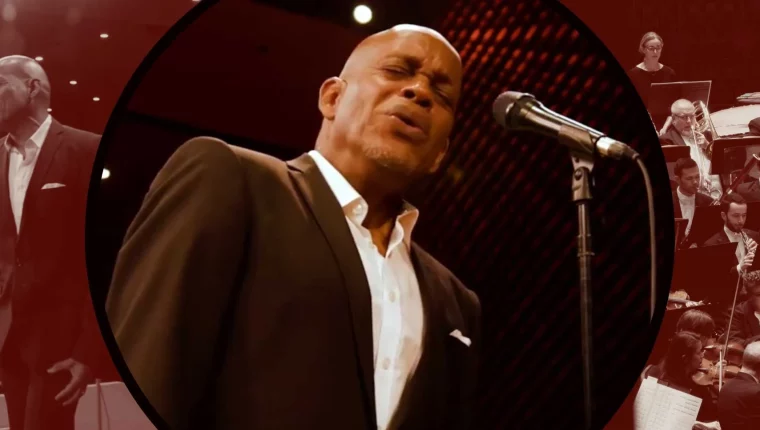for American Songs and Spirituals
October 21 & 22
St Pete & Clearwater
Details here
Consider it a simple gift.
Jubilant Sykes tours the country, appearing with orchestras to share, in a creamy baritone voice, the poetry of American music.
If you aren’t familiar with this exceptional talent, consider one of two Florida Orchestra performances under the baton of Michael Francis, who also conducts the suite from Aaron Copland’s Appalachian Spring and Dvořak’s Slavonic Dances, Op. 72.
Sykes’ gift is the rich repertoire of music for solo voice and orchestra, and the expression he delivers through a spiritual or translation of a large work into an intimate one. Onstage, he makes it sound easy, but it took years for him to realize just who he sings to.
“My mother told me years ago, when my life was really intense, that you don’t really sing for a single person or for those in the theater,’’ he says, “because you have a stronger audience in the heavens.’’
For Sykes, this meant releasing himself from his surroundings – the stage, orchestra, hall, and even the hundreds of people sitting in front of him.
“I’ve learned to be so into the music that I don’t even see faces,’’ he says. “I don’t sing to the audience because the stage is bigger than what we are witnessing. So, I sing for everyone who came before. If I think about the audience, I choke.’’
Sykes, who was born in Los Angeles in 1960, is in demand by orchestras across the country, and so far, hasn’t choked. Although his repertoire is varied, he’s perfected the art of the folk songs, sacred hymns and spirituals that are part of the oral tradition of our country.
Many are part of a book published in 1867, titled Slave Songs of the United States, an important collection that includes Sometimes I Feel Like a Motherless Child. The song describes the pain of an enslaved child being torn from their parents, with the word sometimes repeated as a reference to hope.
“Historically, they had no mother, father, sister or brother because they were taken from their homes,’’ he says. “It has such a plaintive melody and the lyrics are about life, and how sometimes it can be unbearable − the loneliness, the madness and darkness of it all.
“But it also means that I am never really alone. That’s what the song, for me, is about.’’
Also on the program is Were You There?, a song first published at the end of the 19th century that describes the death of Jesus. Its message is to be grateful for his sacrifice.
“It’s a very old spiritual, and I first heard it in the sixth grade,’’ Sykes adds. “It asks ‘were you there when they crucified my Lord?’ It asks ‘would I have done this to this man who had such love in this heart?’ ‘’
Another gem is the Shaker melody Simple Gifts, iconically woven into Copland’s Appalachian Spring, the score for Martha Graham’s 1944 ballet, and published six years later in the first set of Old American Songs.
Along with The Boatmen’s Dance, The Dodger, Long Time Ago and I Bought Me a Cat, the music of Simple Gifts takes on the quality of an opera aria, sung free of strict tempo markings, the lyrics modest and unadorned.
‘Tis the gift to be simple, ‘tis the gift to be free
‘Tis the gift to come down where you ought to be
And when we find ourselves in the place just right
‘T’will be in the valley of love and delight.
“For me, it’s about the true simplicity of life, and that this simplicity is a gift,’’ Sykes says. “Against all the profound things in life, the passions, death and sickness that we all face, the song has taken on a new meaning for me.’’
Sykes could just as easily sing a Schubert song cycle as a set of spirituals, because regardless of the composer or country, songs all tell a story.
“There is no difference between singing spirituals and Schubert lieder,’’ he says. “They are songs, and what makes them so relatable is they are folk songs. Some make use of old poetry, and others are simply talking to your neighbor by singing across a field during a day’s work.
“They have the same colors and the same passions because they come from the heart.’’
Jubilant Sykes performs with
The Florida Orchestra
Saturday October 21 at 8 pm
Mahaffey Theater
400 1st St. S.
St. Petersburg
and
Sunday October 22 at 7:30 pm
Ruth Eckerd Hall
1111 McMullen Booth Road
Clearwater
Ticket information here
Originally published in the Florida Orchestra blog



